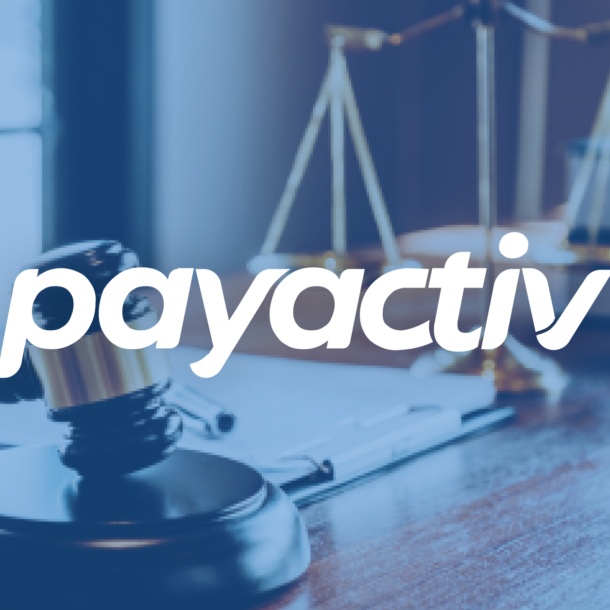
Give Your Employees the Gift of Financial Resilience with On-Demand Pay
- Over half of Americans expect inflation and a potential economic slowdown to impact their July 4th holiday celebrations and shopping.
- Offering employees access to on-demand pay empowers them to stretch their earnings and meet their financial wellness goals.
- 1 in 6 working Americans thinks all employers should offer their employees immediate access to their earned wages, but only 1 in 10 companies currently do so.
Independence Day is celebrated on July 4th to mark the birth of American independence. People across the country celebrate with parades, fireworks, barbecues, and other gatherings with family and friends.
Independence Day is an opportune time to consider the concept of independence from all angles, including financial independence, and why it’s becoming an increasingly integral element of people’s well-being.
In this blog, we’ll look at some of the financial challenges that US consumers are up against and how employers can help their workers progress toward long-term financial independence.
Independence Day Celebrations Set to Continue – But on a Budget
Independence Day 2023 will be among the most widely celebrated holidays this year, along with Thanksgiving, Christmas, and Mother’s Day, with nine in ten US consumers planning to celebrate it. However, they’ll be doing so with cost-cutting in mind: over half expect inflation and a potential economic slowdown to impact their 2023 holiday celebrations and shopping. Many people without cash will use credit cards, short-term installment loans, or even payday loans to fund holiday expenses.
What is Financial Independence?
Defining financial independence will be different for everyone. But in general, it’s about feeling confident that you can pay your bills and have money left over so you have the freedom to, take a vacation, or celebrate holidays like Independence Day as you’d like ̶ but without going into debt. Financial independence isn’t defined by how much money someone makes but more so by their freedom to live without limitations and financial burdens.
Why Employee Financial Independence, Control, and Well-being Matters to Employers
Financial independence and control are intrinsically linked to people’s overall well-being. They result in positive associations such as feeling healthy and full of energy while limiting the number of days a person suffers poor physical and mental health.
Employees worried about finances tend to bring that worry into the workplace, where it can have significant effects:
- 24% of workers admit to being distracted by financial stress at work.
- Of those, nearly 4 in 10 admit losing three or more working hours a week to that distraction.
- 20% of workers have admitted to skipping a day of work to deal with a financial problem.
Many companies offer perks like access to a gym to promote physical well-being, but financial well-being is integral to your employees’ well-being and needs to be prioritized. One way to get there is by embracing on-demand pay.
On-Demand Pay – A Benefit Most Workers Want but Still Aren’t Getting
While many employers would like to help their workers advance towards financial independence, pay increases aren’t a feasible option for companies struggling to keep workers’ existing wages up with inflation. On-demand pay or Earned Wage Access (EWA) is a win-win solution to this problem for employers and employees.
EWA enables workers to access wages earned before the traditional two-week or monthly pay cycle. The flexibility to access their pay on demand allows employees to better control their finances and avoid high-interest credit card or payday loan costs when facing an unexpected expense or wishing to spend a little extra celebrating a special holiday.
On-demand pay is becoming an increasingly sought-after benefit among American workers:
- 1 in 8 working Americans would be more interested in applying for a job that pays them the same day they work.
- 1 in 6 employees think their employers should offer access to earned wages.
- 60% believe job seekers want to know if potential employers offer access to earned wages or on-demand pay.
- 1 in 4 said they left a job in the last two years and would have stayed longer if offered immediate access to a portion of their pay after every day’s work at no cost.
Besides being an effective tool for employee attraction and retention, on-demand pay reduces the volume of payroll labor caused by turnover, ultimately saving companies thousands of dollars annually. Interestingly, relatively few companies have adopted this model – our research found that just 12% of US companies currently offer on-demand pay!
Another compelling reason to offer on-demand pay is that the holistic EWA providers integrate financial wellness tools, resources, and savings opportunities into their offerings. These include:
Discounts
People can save money on prescription medications and other everyday items by finding deals in the EWA provider’s discount marketplace.
Savings
Employees can see at a glance how much they can put into savings based on upcoming bills and spending patterns.
Budgeting
Employees can track when and where they’re spending their money to create strategies for saving and reaching their financial goals accordingly.
Financial Education
Employers can offer financial literacy tools such as 1:1 counseling or financial learning resources. Our research reveals that although virtually all organizations say financial education is essential, only 40% currently offer financial education/counseling to employees, and 20% offer one-on-one financial coaching.
Empowering Your Employees with Financial Independence
Many US families celebrate July 4th, but many are also concerned with keeping their spending in check. Companies can do more to meet their employees’ financial needs and challenges, and on-demand pay is a great place to start.
Responsible employers should offer long-term solutions, not just a quick fix for mitigating the post-holiday spending blues. The best strategy is a mix of financial benefits that give employees a sense of immediate financial empowerment and put them on a course to long-term financial wellness.
All content provided on Payactiv.com/financial-learning/ is for informational purposes only. Payactiv makes no representations as to the accuracy or completeness of any information on this site or found by following any link from this site. Payactiv will not be liable for any errors or omissions in this information nor for the availability of this information. Payactiv will not be liable for any losses, injuries, or damages from the display or use of this information.
Get Payactiv for your business
© 2024 Payactiv, Inc. All Rights Reserved
24 hour support: 1 (877) 937-6966 | [email protected]
* The Payactiv Visa Prepaid Card is issued by Central Bank of Kansas City, Member FDIC, pursuant to a license from Visa U.S.A. Inc. Certain fees, terms, and conditions are associated with the approval, maintenance, and use of the Card. You should consult your Cardholder Agreement and the Fee Schedule at payactiv.com/card411. If you have questions regarding the Card or such fees, terms, and conditions, you can contact us toll-free at 1-877-747-5862, 24 hours a day, 7 days a week.
** Central Bank of Kansas City is the issuer of the Payactiv Visa Prepaid Card only and does not administer, endorse, nor is liable for the Payactiv App.
1 Standard rates for data and messaging may apply from your wireless provider.
Google Play and the Google Play logo are trademarks of Google LLC.
Apple and the Apple logo are trademarks of Apple Inc., registered in the U.S. and other countries. App Store is a service mark of Apple Inc., registered in the U.S. and other countries.

